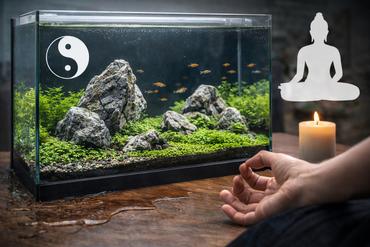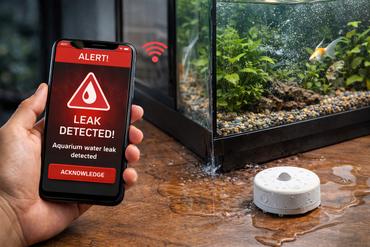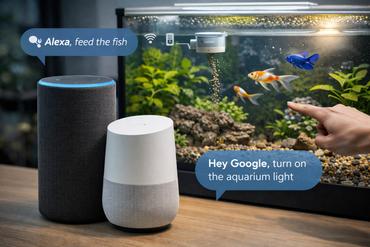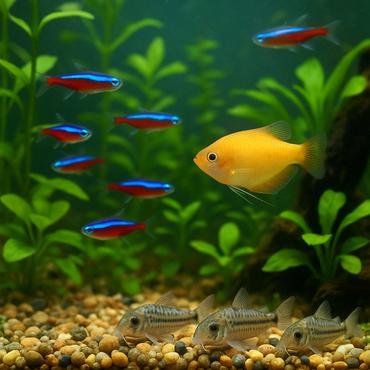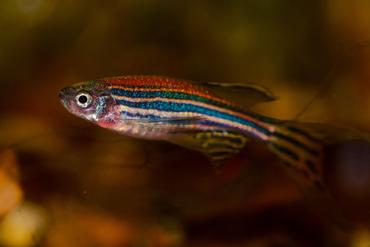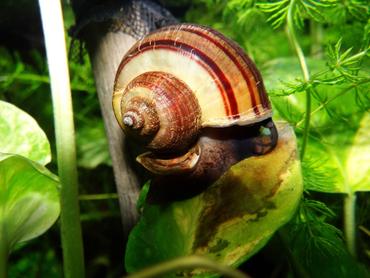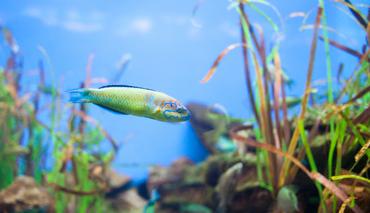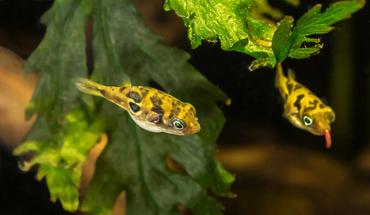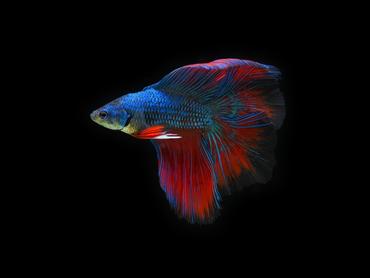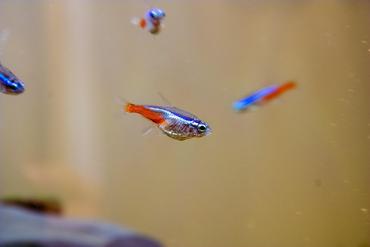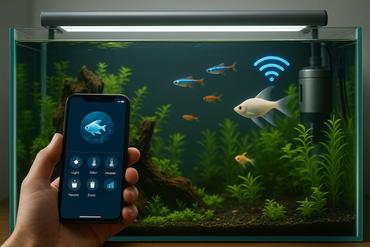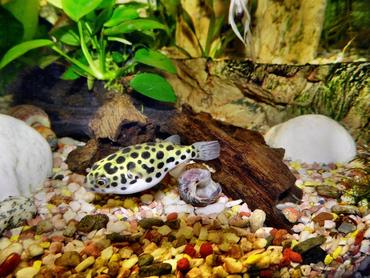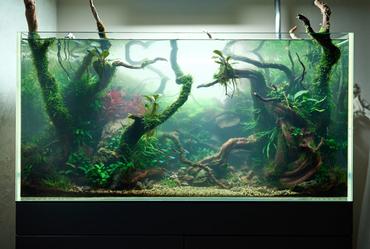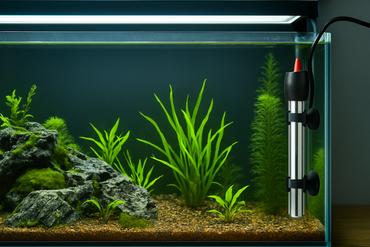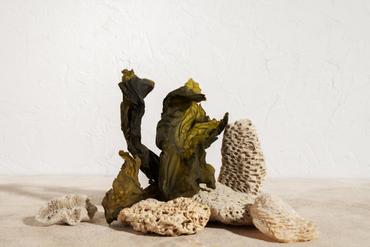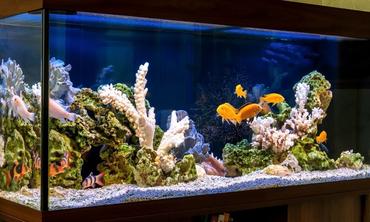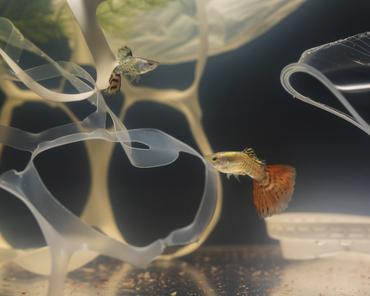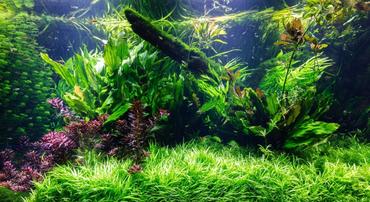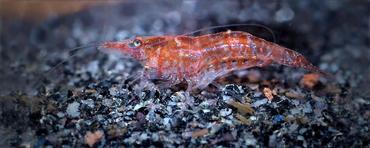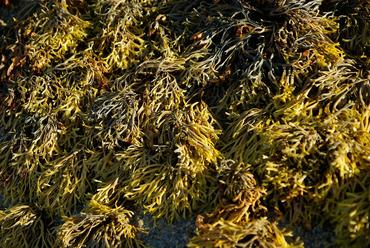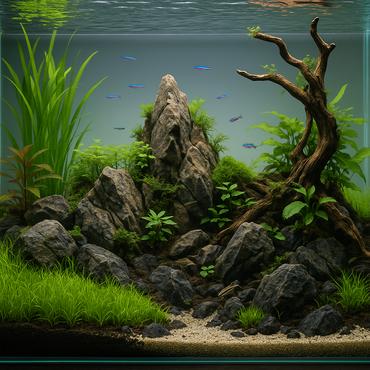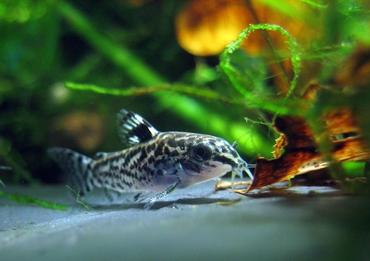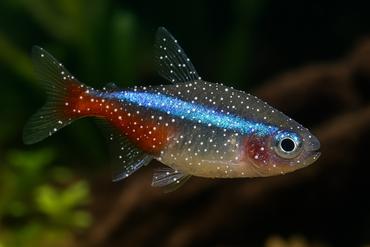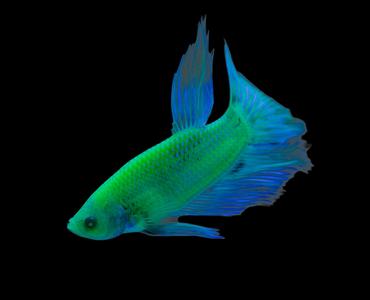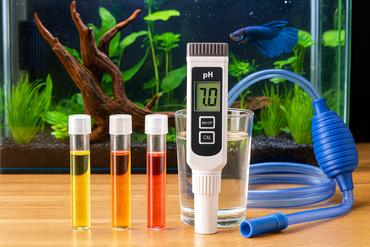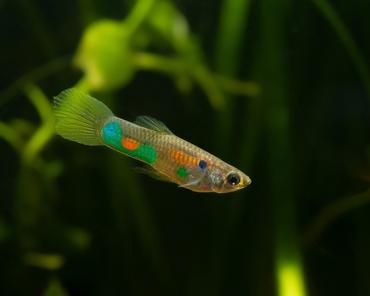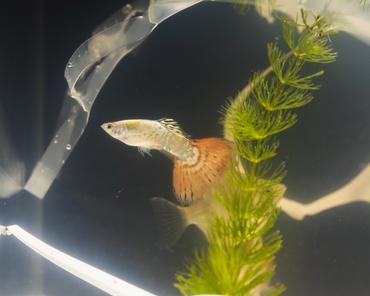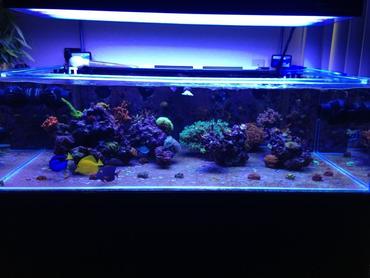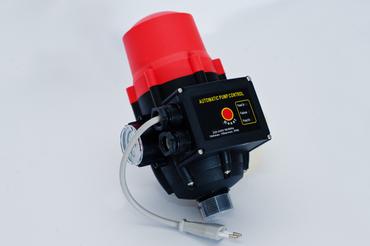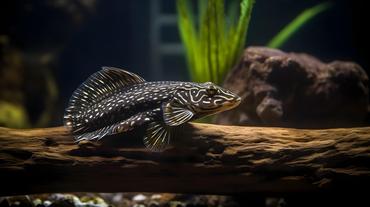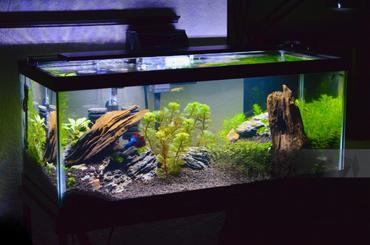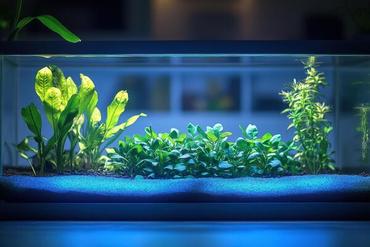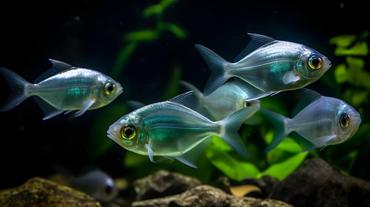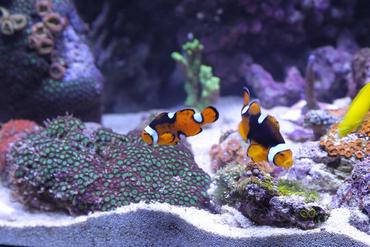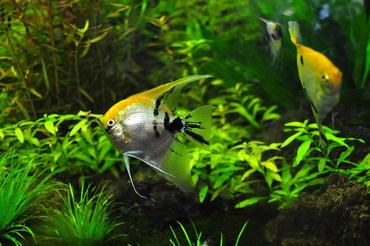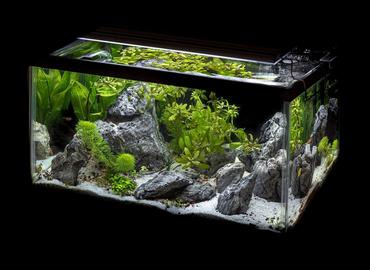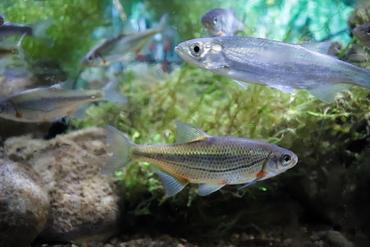WHY KEEP AQUARIUM FISH?

The Therapeutic Power of the Underwater World
In a world dominated by screens and high-pressure schedules, the "aquarium effect" is a scientifically documented phenomenon. Research has consistently shown that watching fish interact in a naturalistic environment can lower heart rates, reduce blood pressure, and decrease cortisol levels. For many intermediate hobbyists, the evening ritual of feeding and observing their fish acts as a form of meditation. Unlike other pets that may demand high-energy physical activity or constant attention, fish provide a quiet, contemplative presence that encourages mindfulness. This therapeutic benefit is one of the primary reasons aquariums are so common in high-stress environments like dental offices and hospitals.
The gentle hum of the filter and the soft glow of the lights create an atmospheric "white noise" that helps many people relax after a long day. If you are looking for a fish that maximizes this calming effect, consider slow-moving, graceful species like the Angelfish or the Pearl Gourami. Their deliberate movements and elegant finnage are particularly soothing to watch. However, to keep these fish healthy enough to provide that tranquility, you must first master the process of cycling a fish tank, as a sick or struggling fish will cause more stress than it relieves.
An Educational Window Into Natural Ecosystems
Keeping aquarium fish is essentially like managing a miniature planet. It forces the keeper to learn about chemistry, physics, and the complex cycles of nature. For families with children, an aquarium is a peerless educational tool. It teaches responsibility through regular feeding and maintenance schedules, but it also provides a hands-on lesson in the nitrogen cycle and the delicate balance of an ecosystem. When a child sees how live plants like Java Fern or Amazon Swords absorb the waste produced by the fish, they gain a tangible understanding of how the natural world functions on a larger scale.
This educational aspect doesn't stop with beginners. Intermediate hobbyists often find themselves researching the specific river systems of the Amazon or the rift lakes of Africa to better replicate the natural habitats of their residents. For instance, keeping African Cichlids from Lake Malawi requires an understanding of high-pH water chemistry and complex social hierarchies. By striving to provide the perfect environment for species like the Yellow Lab Cichlid, hobbyists become amateur biologists, developing a deep appreciation for the biodiversity of our planet's waterways. This constant learning keeps the mind sharp and the hobby fresh for years.
Creativity and the Art of Aquascaping
For many, the "why" of fishkeeping eventually shifts from the fish themselves to the environment they inhabit. Aquascaping—the art of arranging aquatic plants, rocks, and driftwood—has become a global phenomenon. It allows for a level of creative expression that combines gardening with interior design. Whether you are aiming for a lush, jungle-style tank or a minimalist Iwagumi layout, the challenge of balancing nutrient levels with lighting to grow healthy plants is intellectually stimulating. The aquarium becomes a canvas where you can recreate a slice of nature tailored to your personal taste.
This creative outlet provides a sense of accomplishment that few other hobbies can match. Seeing a "carpet" of Monte Carlo fill in across the substrate or watching a piece of driftwood become covered in moss is incredibly rewarding. Practical care is key here; you must stay vigilant against the dangers of high ammonia, nitrite and nitrate to ensure that your living art doesn't succumb to algae blooms. The intersection of art and science in a planted tank keeps the creative process engaging, as the landscape is constantly growing and evolving under your care.
Unexpected Personalities and Social Bonds
One of the most surprising reasons to keep fish is the sheer personality many species exhibit. While they may not fetch a ball, many fish are highly intelligent and capable of recognizing their owners. Large Cichlids, such as the Oscar or the Blood Parrot, are often referred to as "water dogs" because they will swim to the front of the glass and "wag" their bodies when they see a familiar person. Even smaller fish, like the Betta splendens, show distinct individual temperaments; some are bold and inquisitive, while others are more reserved and shy.
This interaction creates a genuine bond between the pet and the owner. Learning the specific "quirks" of your fish—like where a particular loach likes to hide or how a gourami builds its bubble nest—adds a layer of companionship that is often underestimated by those outside the hobby. For people living in apartments with "no pets" policies, a 10-gallon tank with a single, high-personality Betta provides the companionship of a pet without the footprint of a larger animal. This social nature of fish makes the daily routine of care feel less like a chore and more like checking in on a friend who is genuinely happy to see you.
Compatibility and Care: The Foundation of Joy
To enjoy all the benefits of fishkeeping, the hobbyist must prioritize the physical and social health of their fish. A common beginner mistake is choosing fish based solely on looks without researching their social needs. A stressed fish is a hiding fish, and a hiding fish provides very little of the therapeutic or interactive value that makes the hobby great. Understanding the basics of freshwater fish compatibility is the most important step in moving from a beginner to an intermediate level. For example, keeping "fin-nippers" like Tiger Barbs with long-finned species like Bettas or Fancy Goldfish will result in constant stress and disease.
Care also involves the technical side of the aquarium. Consistent water changes, proper filtration, and a high-quality diet are the three pillars of a healthy tank. A common pitfall is the "set it and forget it" mentality. An aquarium is a closed loop, and waste products like nitrates will slowly accumulate over time. Weekly maintenance isn't just about keeping the glass clean; it’s about refreshing the life-support system that your fish depend on. When the water is pristine, fish show their best colors and most active behaviors, which in turn maximizes the satisfaction you receive from the hobby.
- Neon Tetras: Ideal for beginners looking for a peaceful, schooling community fish.
- Oscars: Perfect for intermediate keepers wanting a high-intelligence "pet" experience.
- Corydoras Catfish: Essential for adding activity to the bottom of the tank while helping with clean-up.
- Temperature Control: Use a reliable heater; stable temperatures prevent immune system stress.
- Feeding Variety: Mix high-quality pellets with frozen foods to ensure vibrant color and health.
- Water Testing: Regular testing catches invisible toxins before they cause a tank-wide crisis.
- Group Size: Schooling fish like Danio or Tetras should always be kept in groups of at least six.
- Quarantine: Always isolate new fish for two weeks to prevent introducing pathogens to your main tank.
- Substrate Choice: Use sand for bottom-dwellers like loaches to protect their delicate barbels.
- Lighting Cycles: Use a timer to provide 8-10 hours of light, mimicking a natural day-night cycle.
A Hobby for Every Lifestyle and Space
One of the most practical reasons to keep fish is its incredible scalability. Whether you have space for a tiny 5-gallon nano-tank on your desk or a massive 200-gallon room divider, there is a version of this hobby that fits your life. Fishkeeping can be as simple or as complex as you want it to be. You can focus on the simple joy of a few hardy Guppies, or you can dive into the complex world of high-tech CO2 injection and rare Discus strains. This flexibility means that as you grow in knowledge, the hobby can grow with you, offering new challenges at every stage.
Furthermore, the fishkeeping community is vast and welcoming. From local aquarium societies to massive online forums, there is always someone ready to share a tip or help troubleshoot a problem. This social aspect adds another layer to the "why" of keeping fish. It connects you with people from all walks of life who share a common fascination with the underwater world. The ability to share your successes—like a successful breeding project or a beautifully grown-in aquascape—makes the hobby a lifelong journey of discovery rather than just a fleeting interest.
Takeaway: Why Fishkeeping is the Ultimate Hobby
Keeping aquarium fish is a rare pursuit that offers visual beauty, scientific intrigue, and emotional fulfillment all in one package. It is a hobby that rewards patience, encourages learning, and provides a much-needed sanctuary from the stresses of modern life. By creating a thriving aquatic environment, you aren't just decorating a room; you are building a window into the natural world that fosters a deep sense of peace and curiosity. Whether you are mesmerized by the delicate "dancing" of a school of Tetras or fascinated by the complex social lives of Cichlids, the reasons to keep an aquarium are as varied as the species that inhabit them. The more you put into the hobby in terms of care and research, the more it gives back in return. Ready to start your own aquatic journey or looking to take your current setup to the next level with expert equipment? Explore our deep-dive reviews on filtration, lighting, and aquascaping tools at RateMyFishTank.com to ensure your fish have the best home possible! If you have questions about which species are right for your lifestyle, join our community forums and connect with thousands of passionate hobbyists today. Would you like me to help you create a customized starter list of fish and plants based on your specific tank size and maintenance preferences?
MOST RECENT ARTICLES
